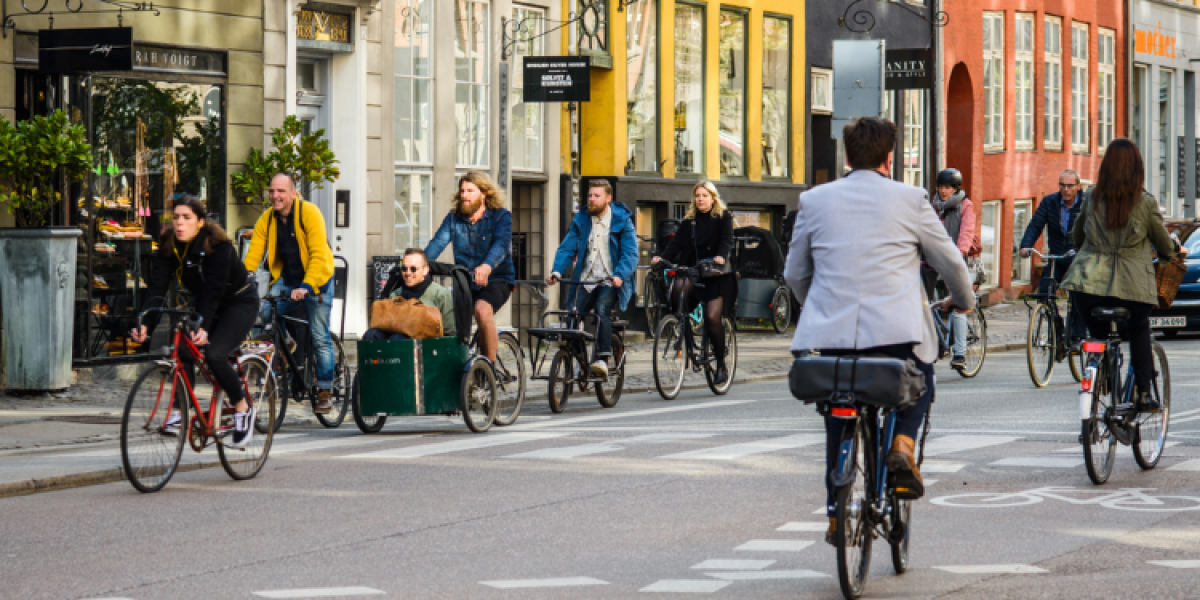
An Oxford research group looked into what makes Denmark such an amazing country for expats. The happiest country on Earth attracts expats from all over the world. While 50% of them come from European countries, 34% come from Asia, North America, Oceania, etc., and the rest from other Nordic countries. If you've always wanted to discover the legendary “hygge” and are looking to relocate to Denmark after the COVID-19 crisis, here's what you should expect.
Formalities are straightforward
Foreign nationals coming from the European Union, the European Economic Area, and Switzerland, can stay freely in Denmark for three months. After that, they have to apply for a residence permit. Third-country nationals must obtain a residence permit, and a work permit if they intend to work there, before leaving their home country. The good news is that Denmark has set up many programs to attract highly qualified professionals and their families. It's worth noting that the number of professionals working in Denmark increased from 284,385 in 2014 to 398,580 in 2019.
The Danish government also ensures that its public services are accessible, even those who do not understand and speak Danish. From customs to the tax agency, you shouldn't find it hard to communicate as most of the staff speaks English. In Copenhagen, for example, you can rely on the International House Copenhagen that helps expats in settling. Most expats in Denmark are also satisfied with the way their residence and work permits have been processed.
Work-life balance
One of the best things about Denmark is its work-life balance, which is respected by both employees and employers. In Denmark, the official workweek consists of 37 hours. You will rarely see employees at their work station after 5 p.m. as most of them leave the office around 4 p.m. So after work, they can pick up their children from school, go shopping and prepare dinner. Still, the country has an efficient workforce -- one of the best in the world-- although it's advised not to do extra hours. Besides, the last weeks of July are the vacation period, so you will get to spend quality time with your family or friends. You are also entitled to 5 weeks of paid leave that you can take to explore the beauty of the country.
Regarding parental leave, moms are entitled to 14 weeks, and dads get two weeks of fully paid leave from the birth of their child. Beyond this period, the two parents can share 32 weeks of paid leave to take care of their child. For single expats, there is a wide range of clubs, groups, as well as social and professional networking opportunities.
Besides, some companies are quite flexible, allowing their employees to work from home every other day. What if you're sick? You are encouraged to stay and home until you feel better.
A family-friendly country
According to a study by Oxford Research, nearly half of expat in Denmark have relocated with their family. Also, almost a third of them have children of school age. While some expat parents prefer to enrol their children in international schools, two-thirds of them have opted for Danish schools. Denmark has an excellent education system that provides quality and free education for everyone, including expats. Younger children have a place guaranteed in nurseries and kindergarten. Half of the fees are taken care of by the municipality where you live while the other half is your responsibility. You can also find private nurseries and daycares. As mentioned above, families have a great significance in Denmark, even for employers. For example, they are flexible with those who need to take their children to the dentist or for a medical checkup. You can also take a paid day off when your child is unwell.
Career prospects are abundant
More than half of expats chose to move to Denmark to boost their career. The country also has an open, flexible and dynamic labour market, which means that opportunities are plentiful. The most promising fields for expats in Denmark are IT, life sciences, health and engineering. The country also has a skills shortage list, so many companies are constantly searching for foreign expertise, so you should not find it hard to secure a job. The Danish labour market is also famous for its mobility and flexicurity, which means that are no barriers for foreign professionals who wish to change jobs. This doesn't affect their pension and paid holidays in any way. It's also worth noting that Denmark offers higher wages compared to the rest of Europe. On average, a foreign professional can earn around DKK 58,642 per month, which is equivalent to 7,878 euros. Also, 60% of expats working in Denmark found a job by their own means while 13% of them moved to Denmark through a company transfer, and the same proportion of employees were headhunted, especially those working in IT and finance.
What about the COVID-19 crisis?
Denmark is one of the first European countries to go into lockdown in March 2020. Now that restrictive measures have been lifted, bars, restaurants and businesses, are reopening smoothly in August in compliance with health regulations to avoid a new surge. These measures include a contactless payment system, and restaurants, bars and pubs being allowed to request clients' phone numbers for tracing. It's also worth pointing out that Denmark has one of the world's best healthcare systems, offering universal healthcare, including for expats.



















